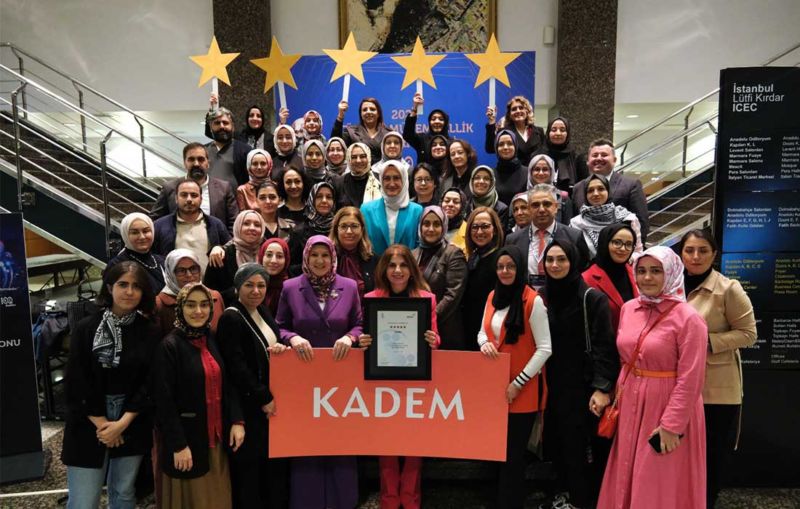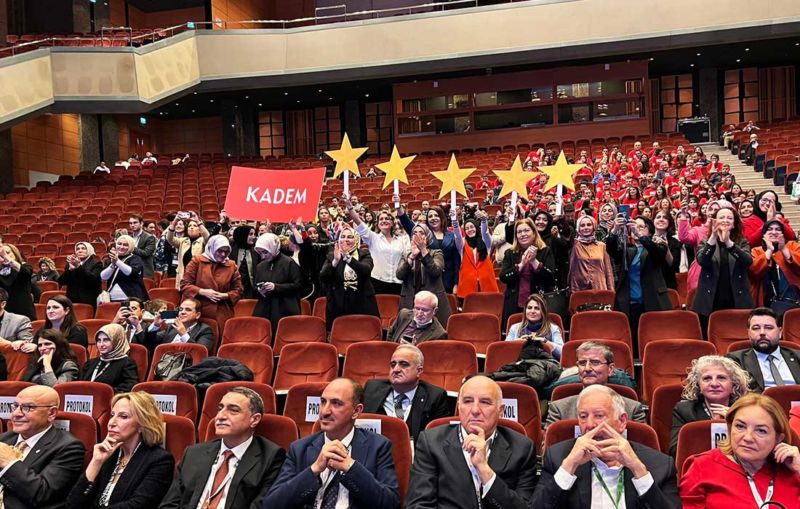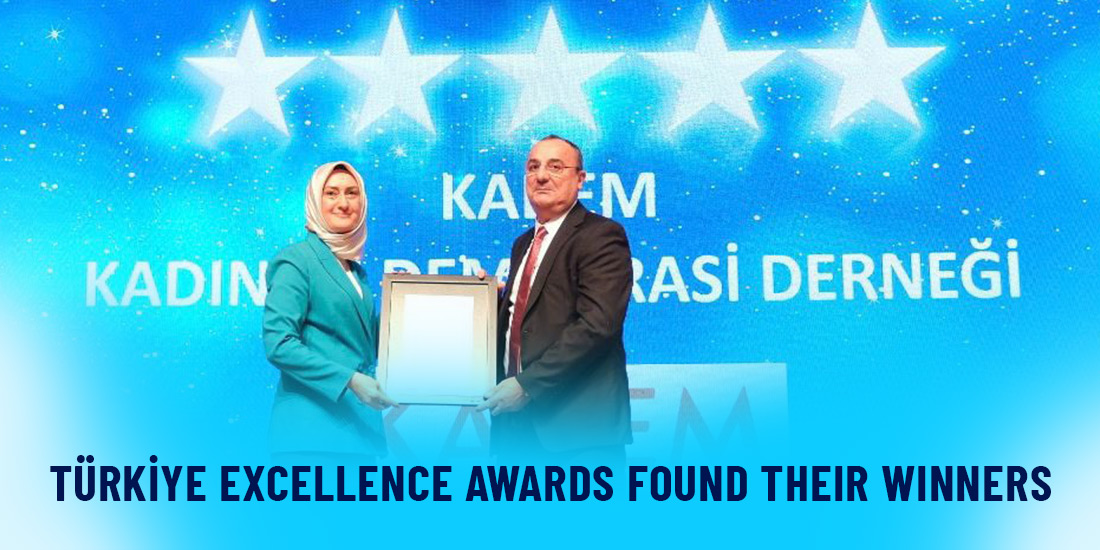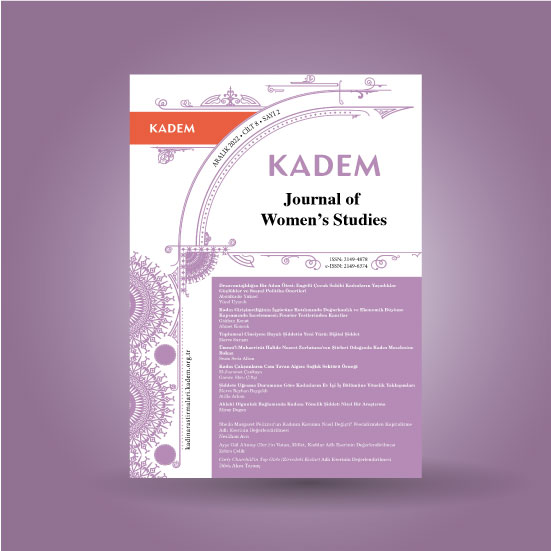KADEM
Becomes the First Women’s Civil Society Organization to Receive the EFQM Excellence in Performance 5-Star Competence Certificate
The 2023 Türkiye Excellence Awards Ceremony took place at the Lütfi Kırdar Convention Center on November 21-22.
After the 32nd Quality Congress themed ‘Like Water,’ a ceremony was held with the attendance of prominent figures from the business, science, academia, and media worlds.
At the ceremony organized by the Turkish Quality Association (KalDer), the country representative of the European Foundation for Quality Management (EFQM), KADEM, became the first NGO to receive the EFQM Excellence in Performance 5-Star Competence Certificate through its implemented quality program.

The Chairwoman, Assoc. Prof. Saliha Okur Gümrükçüoğlu, received the 5-Star Certificate on behalf of KADEM and stated in her speech, ‘We take justified pride in elevating our efforts in the field of women’s rights to a higher level using the EFQM model.’
Yılmaz Bayraktar, the Chairman of KalDer’s Board of Directors, congratulated the institutions that rightfully earned awards, stating in his speech, ‘I congratulate our institutions that have become pioneers in the culture of excellence in our country. I hope these awards serve as inspiration to organizations not yet familiar with the EFQM model and act as a catalyst for a new beginning for them.’
The EFQM model, implemented by the Turkish Quality Association (KalDer), is developed by the European Foundation for Quality Management (EFQM) and is built upon nine fundamental criteria. Each year, organizations making significant progress in performance criteria are awarded the ‘EFQM Excellence in Performance Competence’ certificate, reaching up to 7 stars. The most significant contribution of the EFQM model to NGOs is the ability to measure societal impact and the execution of activities in line with a strategic plan.
The fundamental motivation behind KADEM’s inclusion in the EFQM quality model is to provide qualified, high-quality, and sustainable services in the areas of institutional capacity, infrastructure, human resources, and finance.




